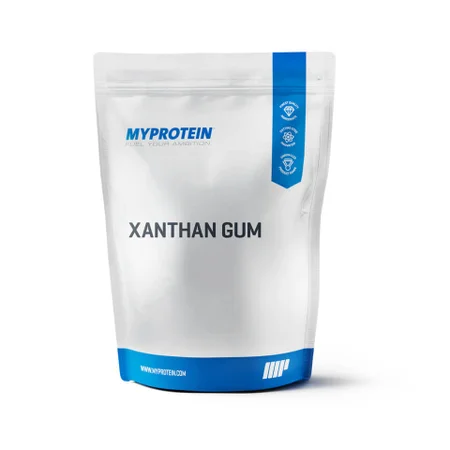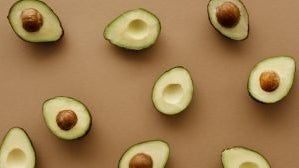Xanthan gum is a complex exopolysaccharide. If that sentence isn’t confusing enough, then the widespread debate over this food product regarding the question of whether it is good for you or something you would want to ingest at all is most certainly cause for a question or two.
What Is Xanthan Gum?
Xanthan gum is a polymer made up of sugar residues, a result of bacterial secretions. Yummy. It is produced by a plant-pathogenic bacterium, something that can cause many a disease in certain plants. So what good does this do? Well, because of its properties it makes for an effective thickener and stabilizing agent, meaning that you will find it in both industrial products and ones that you eat. This includes everything from lotions, cosmetics and industrial products to supplements, toothpaste, medicine, jams and jellies, ice cream, yoghurts and salad dressings.
It is made from glucose, lactose or sucrose when fermented by a bacteria called Xanthomonas campestris. When it is made into a solid by isopropyl alcohol it is then dried out and ground up into powder so that it can be mixed with liquid to form a gum-like substance.
It is considered a non-hazardous additive when added to brine or fracturing fluids because it is an all natural emulsifier. Sure it certainly sounds off-putting when something you might eat features in lists of drilling fluid ingredients, but it is actually considered safe to consume up to 15g of xanthan gum a day.
So why take the risk?

Benefits Of Xanthan Gum
Unless you are an avid reader of food labels there is a good chance you didn’t know when you’ve been eating it. Xanthan gum is popular as a food additive, often found in gluten-free products, which many people believe pertains some good health benefits, including lowering your cholesterol along with your blood sugar levels.
It is a soluble fiber, meaning that your body cannot break it down. Soluble fibers absorb water and form a gel-like substance in your digestive system. This slows down your digestion. Positive studies in favor of xanthan gum suggest that its slow digestion alters the rate at which sugar can enter your bloodstream, which reduces blood sugar spikes after eating it.
Another benefit is weight loss, due to xanthan gum’s slow digestion’s effect on how full you feel after consuming it, thus lessening your appetite. It has also been linked to improved bowel movements, as xanthan gum’s ability to increase the movement of water into your intestines makes for regularity, making faeces easier to pass.
When added to liquids that older people and those with neurological disorders struggle to drink, they make drinks more quaffable and easier to swallow.
And last but not least in the most commonly acknowledged benefits of xantham gum, it makes for an effective saliva substitute for anyone suffering from a dry mouth. Though, varying study results suggest proof of this is still inconclusive.
The Down Side Of Xanthan Gum
Many of the facts suggest xanthan gum serves best for its thickening properties, making foods easier to store, to flow more smoothly and to withstand a wide range of temperatures and pH levels.
“Journal of Pediatrics”, an article published in 2012, highlighted that the Food and Drug Administration (FDA) issued warnings of products that contained xanthan gum had been linked to the illness and death of infants. As a result, it is highly advisable that children and babies should not be fed products that contain xanthan gum-based products, food or thickeners. The FDA states that over-the-counter medications containing xanthan gum must be labelled with clear warnings regarding the potential hazards of choking, which can occur when such medications are not taken with enough water. That said, the FDA has placed no limitations on how much xanthan gum can be contained in any kind of food.
Further to this, in people of all ages, xanthan gum can create digestive issues including stomach pains, cramps, increased bowel movements, softer stools, gas and altered gut bacteria. The latter, however, may be seen as a positive as xanthan gum’s ability to alter gut bacteria relates to other soluble fibers and prebiotics, which help to support good bacteria in your gut.
Take Home Message
So while the jury may still be out, with xanthan gum still legally and readily available in a wide range of foods and medicines, the take-home message is seemingly unanimous: for infants, it is a resounding no. And while the prebiotic effect, potential weight loss and help with bowel movements and saliva may be a plus for some, side effects may be avoided as long as you do not consume more than 15 grams a day. So, as always, read the label, and know what you are putting into your body.

Alice Pearson is a UKVRN Registered Associate Nutritionist and UK Anti‐Doping accredited advisor, having obtained a Bachelor’s of Science in Nutrition and a Master’s of Science in Sport Nutrition. She has a specialist interest in the use of sports supplements for improving health, fitness, and sport performance. Alice has experience working with both amateur and elite athletes, including providing nutritional support to Tranmere Rovers FC and Newcastle Falcons Rugby Club. Her nutritional guidance is always supported by evidence‐based research, which she keeps up to date through continuing professional development and independent learning. In her spare time, Alice loves travelling, hitting the gym, and getting stuck into a good book. Find out more about Alice's story here.





